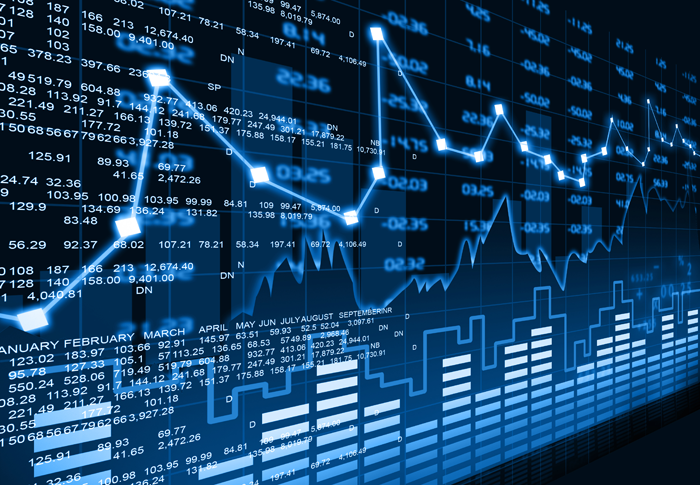Types of Program Trading
As an investor, you may stumble across the concept of program trading from time to time, and you may be wondering what this concept is or how it relates to you. Learning as much as possible about this type of trading activity can help you to make more informed decisions as an investor, and it could potentially help you to profit even further from your trading activity.
What Types of Program Trading Are There?
Program trading is a broad term that describes computerized trading activities. These activities usually involve buying and selling very large quantities of stocks and other commodities to affect the price of the investments. The programs use unique techniques to automatically buy and later sell the shares at an opportune time.
This is most commonly used by hedge funds and major financial institutions, and it can potentially have a damaging effect. For example, the sudden decline of the stock market by almost 1,000 points on May 6, 2010, was caused by program trading activities. However, because the activity continues to yield tremendous profits, it remains a popular method of trading.
There are four primary types of program trading, and learning more about each one can give you a better idea of the types of trading activities that take place each day.
When you understand more about the major influences that are affecting the large price fluctuations in the market, you can better determine if you should or should not execute your trades. You may even decide that you want to try to use these various programs yourself to profit more fully from your trading activity.
1. Algorithmic Trading
With algorithmic trading software, a pre-determined list of criteria or factors is programmed into the software program. The program actively monitors the market and can analyze current marketing conditions with incredible speed that humans simply cannot duplicate.
More so, it analyzes real-time conditions rather than historical data, which is a method another type of software program uses. The program has the authorization to buy and sell shares according to the algorithms it uses. In many cases, the program executes these trades very quickly to take full advantage of price fluctuations.
It is important to note that the results you will enjoy through the use of algorithmic trading programs directly relate to the program itself. A well-written program can produce fast and substantial results, but you could potentially lose a large sum of money when using a poorly written program.
While major trading firms most commonly use algorithmic trading programs, private individuals who have the financial ability to place high volume orders can also use them. With these programs, the software program completely controls the trades. While the investor typically does not have the ability to issue final approval before the program executes the trades.
2. High-Frequency Trading
High-frequency trading is a special type of software program that works differently from algorithmic trading programs. This is because these programs use algorithms in a very specific way. The program can analyze market conditions with speed, and when certain conditions are present, the program will buy or sell large quantities certain shares quickly. The result is a rapid succession of trades being executed throughout the day.
Because such large amounts of stocks are bought and sold, only a very small movement in the stock’s price can result in tremendous profit for the investor. High turnover rates, as well as a high ratio for orders-to-trade, is common with high-frequency trading.
The bid-ask spread on some transactions can be rather significant, and this can erode away profits from a specific transaction. Because high-frequency trading programs are ultra-fast, this increases the overall profitability of the investment activity. However, it can also increase the risk of an investor using a poorly designed software program.
Some people have criticized the use of this type of program. They state that it artificially manipulates the market. Furthermore, they believe that it does so at the expense of smaller investors. These criticisms are common with other types of trading programs as well.
3. Quantitative Trading
As an investor, you may be well-aware of the incredible calculations that you must make to analyze different trade options. Quantitative trading programs are available to crunch these numbers for you. They do so at a lightning speed and can instantly determine when an ideal time to buy or sell stocks is. This is a type of program that functions based on the quantitative analysis of numerous factors at the same time.
For example, they may focus on oscillators and moving averages. Note that this type of program relies heavily on analyzing historical data. So it is unique from the other types of software programs available for trading activity.
Quantitative programs are still most commonly used by large financial and investment firms. However, private investors are using them more frequently as well. Quantitative programs are also under criticism for placing investors at an unfair advantage over others. That is because they can sharply affect stock prices in a very short period of time.
You might also like – Mortgage Bond: Definition and Advice
4. Statistical Arbitrage
Through statistical arbitrage, investors use a software program to identify market inefficiencies or errors that may be manipulated in the investor’s favor. The investor can make a fortune in a very short period of time. He can do this by taking advantage of the errors or issues quickly and with large quantities of shares.
This type of trading program, however, is less frequently used as it once was. This is because technology has advanced considerably, and such inefficiencies or errors in the market are increasingly rare. Furthermore, when they do occur, they occur for a very short period of time and are minor in most cases. Nonetheless, some investors and large firms continue to use this type of software program. They use it to make great profits through specialized trading activities.
While there are opponents to program trading software, note that many individuals and companies use these programs to generate incredible returns. Some, however, choose poor programs or do not know how to strategically use the programs to their fullest potential. As a result, they have lost a substantial amount of money.
As an individual investor struggling to achieve results in a tumultuous market, the use of these programs by other traders may have a direct impact on you. Some private investors have decided to even the playing field and use these programs themselves. If you take this step, ensure that you research the software programs carefully. You should also understand how to use the program you select before activating it. Other investors staunchly oppose the use of software for trading activities. Some also lack the deep pockets that are necessary to successfully use them. Have you had personal experiences with program trading software? Share your personal experiences below by leaving a comment.
This site uses Akismet to reduce spam. Learn how your comment data is processed.
As a participant in the Amazon Services LLC Associates Program, this site may earn from qualifying purchases. We may also earn commissions on purchases from other retail websites.
Find us on Facebook
Recent Posts
- Forex Indicators: 4 Indicators Investors Should Know
- Best Money Clip: 10 Options to Secure Your Cash
- What is a Savings Account? Explaining Why You Should Have One
- Clarity Money Review: A One-Stop-Shop
- What Do Investment Bankers Do? Ultimate Guide
- Top 10 Best Investing Books
- Best Bitcoin Mining Software: Top 5 Revealed
- Depreciation Methods: Our Top 4 Picks





Leave a Reply